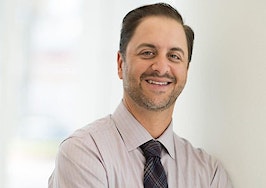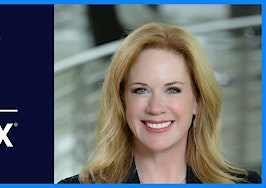Those hoping that the next generation of 100-percent commission brokerages would just die a death may want to see a therapist about their denial.
These thick-skinned companies are alive and well, and the tenacious breed of broker-owners who run them have gotten used to being called flat-fee scumbags.
They say they know what it feels like to be Netflix at a Blockbuster conference — they’ve been sent hate mail; they’ve been shunned from industry conferences, stopped from joining real estate boards, had their signs defaced — but they have brushed it off and kept going.
And the accolades are going to start rolling in.
According to Real Trends’ president, Steve Murray, companies using the 100-percent commission model snagged three out of the top 11 slots on the Real Trends 500, due out at the end of the month, when their identities will officially be unveiled.
“In all of their varieties, they are here to stay. The data supports it,” Murray said. “They are a huge part of the industry; it wouldn’t surprise me if they were getting to be 15 to 25 percent of the industry. They are all over and they are multiplying.”
He tells the more traditional brokerages not happy with this competition: “It’s just a different way of doing business, not good or bad, they just are, and it’s making you work harder to prove your value.”
Re/Max blazes the trail
Realty Executives International pioneered the 100-percent model in 1965. But Re/Max founder Dave Liniger made his name with the formula when launching in 1973 and proved to be very effective at it, said Re/Max president Geoff Lewis.
“In a sense he blazed a trail for the 100-percent model,” he said.
Lewis has heard the stories from Liniger. “There was opposition to us joining boards, having signs stolen and defaced; there was a real effort to make the business model fail,” he said.
Re/Max’s 100-percent model allowed it to surge in market share and to establish a brand, which the company considers one of its biggest competitive advantages, he said.
The 100-percent commission concept allowed the company to attract the experienced, productive agent who was more profitable on a fixed monthly fee than on a commission split, said Lewis. The average Re/Max agent of a large brokerage does 16.5 transactions annually.
Lewis warns: “But no competitive advantage lasts forever; you can’t patent a business model. You have to find sustainable advantages in other areas rather than the business model.”
Re/Max has watched with interest as the next generation of 100-percent commission brokerages has sprung up.
Said Lewis: “The jury is still out on some of the models that have gone further than Re/Max — those that only have a transaction fee, for instance. In any version of the 100-percent model, the agent has always paid something,” he said.
As Re/Max has matured, it is now promoting a 95/5 split, which it started around 12 years ago.
The move from 100/0 to 95/5 was to help brokers improve their profit margins, which were getting squeezed, said Lewis.
Of Re/Max, Murray of Real Trends added: “[The company is] going to do over one million sides for last year, and there’s only one company in shouting distance of that, and that’s Keller Williams,” he said.
Re/Max attracts agents coming from 100-percent commission brokerages who don’t mind this small split.
“They are looking for more tech, support and a recognized brand name,” said the Re/Max president.
The ‘Facebook‘ of the 100-percent model
Of the next-generation companies, Re/Max should perhaps watch Realty One Group most closely.
The largest in its cohort, the Las Vegas upstart that also operates in Arizona and Southern California has just announced its imminent arrival in New York from its start 12 years ago. Next year, it’s going international.
According to Burke Smith, EVP of home warranty protection plan company American Home Shield. and someone who has consulted with a number of 100-percent commission brokerages, Realty One Group is streets ahead of the others.
“Kuba Jewgieniew, Realty One Group founder, is the innovator in this space right now — he’s like the Facebook versus all the other social media sites,” Smith said. “In terms of transactions, you could probably add up all the other companies’ numbers to equal what Realty One Group is doing.”
The company’s figures are impressive: In 2016, nearly 3,000 real estate professionals joined Realty One Group. The company saw a 24-percent increase in sales volume, and transactions totaled 44,000, a total of over $15 billion in 2016.
Last year, agents earned around $300 million in commission; this year, it will be closer to $400 million.
“It will be interesting going forward; we are going to see a much clearer line drawn between the brands which are consumer-driven and those that are agent-driven,” Smith added.
“The winner of this 100-percent commission brokerage race will be the one that creates a brand that is recognizable by both consumer and the agent. A brand that doesn’t work in concert with its agents is not sustainable.”
For more small- to medium-sized independent brokerages competing in markets with a tight listing inventory, it would be smarter for them to join a 100-percent commission brokerage as a franchise, he said. That way they maintain the autonomy but unload the logistics of running a brokerage.
Smith has no doubt that being with the 100-percent brokerage model can give agents an edge.
“The reality of it is, a good agent in a 100-percent model will be able to provide more for their client because they have more financial resources available,” he said. “An agent in a 100-percent brokerage should spend more on marketing for the client than the traditional model agent.”
Smith believes companies including Realty One Group, Big Block Realty and Signature Real Estate, have all done a good job of creating a high-quality brand image that in some respects outclasses a lot of the traditional brands with outdated images and slogans.
Competing with the big brands
Realty One Group no longer competes with 100-percent companies, according to Smith. It competes with the established brands.
CEO and founder of Realty One Group, Kuba Jewgieniew, explains his approach.
“With HomeSmart, we don’t see them as a competitor; it’s more Keller Williams, Coldwell Banker and the Berkshire Hathaways. We really respect these brands and admire what they’ve built.”
The traditional brokerages are accepting of his company these days, he thinks.
“I feel that they are taking us seriously; they know we are a threat, that we are strategically expanding nationally,” he said.
Unlike Re/Max, Realty One Group has no intention of deviating from the 100 percent.
“We know it works; our margins are higher, as long as we align with the right people,” Jewgieniew said.
The brokerage has a monthly membership fee which enables agents to use the company’s services, systems and access to offices with key fob, as well as a transaction fee.
HomeSmart: Fast growth but not at any cost
Another major player in the 100-percent commission brokerage space is HomeSmart.
Its sales volume in 2016 was more than $12.67 billion, up nearly 26 percent over last year, while its transactions came in at 46,568, up over 20 percent over the same time frame. It hired 2,287 agents nationwide in 2016, bringing its count to 11,300 total.
The company added 22 new franchised offices last year, and founder Matt Widdows stresses that he is being selective: “The biggest thing is we want to find good partners; it’s very, very important that we get alignment of vision and culture. We’ve started to get very picky with who we are bringing on,” he said.
Widdows, based in Phoenix, takes pride that the 100-percent commission model all started in the Phoenix market — it’s the business formula’s birthplace.
He believes that increasing numbers of traditional brokerages are taking a page out of the 100-percent commission brokerage’s book, and that this is good for the industry.
“If you asked traditional brokerages a few years ago if they had a 90/10 split, they wouldn’t have,” he said. “That’s a testament to where we are going. The agents’ commission is being pushed down, earning is pushing down on the broker side and broker splits are making the broker more competitive.”
How does HomeSmart make its model work financially? “We use tech to keep on a path of consistent delivery of service — that is how you afford to do it, very efficient very high-end, high-touch, customer service,” he said.
“We write all of our own software, including all of the things we offer consumers to market homes and purchase homes,” he added.
While traditional brokerages might say you won’t get the support at 100-percent commission brokerages, Widdows reply is: “We have to give great service to the agents; our reputation is more important than ever to make sure that we are protecting and representing the brand well.”
Signature Real Estate
While Widdows is proud of the number of 100-percent brokerages to come out of Phoenix — Las Vegas is another hotbed of activity.
The co-founders of Signature Real Estate Group, which launched in May 2013 in Sin City, would like to have 2,000 agents in Vegas alone in the next few years.
They believe the 100-percent brokerage model will become the new norm — and also that those that don’t support agents won’t last.
“For us, we are trying to go above and beyond the competition in support,” said co-founder Mike Rasmussen.
The business, which is attracting agents across the board, is trying to offer training every day, he said.
Co-founder Brandon Roberts said that in their third year, they are at 600 agents and expanding on a franchise basis, opening two new offices a month on average. Their latest markets include Massachusetts and Florida.
Roberts, a former regional owner at Exit Realty, Nevada, said Signature’s next office is set up to cater to teams specifically.
Carbon copies pop up in Texas
They say imitation is the highest form of flattery, and there is definitely some copycat action happening across the country.
In Fathom Realty’s Dallas-Fort Worth market, founder Josh Harley is seeing some traditional brokerages trying to offer plans with 100-percent splits but with little success.
“These companies are charging high monthly fees with low transaction fees but then tacking on separate E&O fees, handling fees, and their typical franchise fee of 6 percent or more,” he said. “When it is all said and done, the agent paid almost the same amount as they did before when they were on a 30-percent split.”
On the other hand, he doesn’t think any of the 100-percent commission brokerages have really “nailed it” yet, including his.
“To be successful, we must become experts on streamlining our business while helping our agents become more successful than ever before,” Harley added, “The 100-percent companies who grasp this idea will thrive, while those who try to get away with charging less but also giving less, will go out of business.”
It’s only a matter of time before brokerages who offer the 100-percent model dominate the real estate industry, thereby becoming the new “traditional” brokerage model, said Harley.
“Once our model reaches a 15-percent market share of agents, our model will cross a pivotal point in the adoption lifecycle and the industry will begin to see a significant shift of agents moving to 100 percent companies like Fathom,” he said.
How much for your company?
You know you are doing something right when a big company makes an offer for you.
In the case of another Texas company, J.P. & Associates Realtors (JPAR) was approached by a large, public real estate company that had its own 100-percent commission brokerage already but liked the JPAR model and structure.
Said founder JP Piccinini: “I wouldn’t sell it for a billion bucks.”
He’s now getting to the fun part, where business is easier now his brand is known.
In his sixth year, he is recruiting 60 agents a month in Dallas-Fort Worth alone.
When he started, he took agents straight out of real estate school, then mid-producers. Now he is getting serious producers doing 100 to 200 transactions, with $40 million sales volume a year. This is what he wants — agents with high productivity.
How do you win in this market? Like any other business, you still have to have something new to say. NextHome’s chief strategic officer, Keith Robinson, former COO of Better Homes and Gardens Mason McDuffie Real Estate, said that most residential brands at this point will say they excel over the competition when it comes to technology and branding.
“That’s the stock answer, and I think our manifestations of those two statements are different and need to be different,” Robinson said. “The world doesn’t need just another real estate franchise; you’ve got to be passionate about what you bring to the party.”
NextHome, launched in 2014, is in 40 states today with 170 offices and 1,200 members, and its goal is to be in all states by end of 2017.
Being California-based, tech is a big part of NextHome’s appeal, which targets millennial consumers in its marketing.
One project it is working on at the moment is helping its agents on converting leads.
“Our tech is focused on making all of these fractured disparate tools communicate for the agent,” said Robinson.
Whatever the economic model might be, it doesn’t always translate to success if the culture and leadership aren’t there, said the seasoned executive.
‘You have to look big’
The founders of Big Block Realty (Big Block), a 100-percent commission brokerage making a big noise in San Diego, are well aware of this.
“With the 100-percent model, you have to be smart — you have to look big,” said Big Block co-founder Sam Khorramian. “For a boutique brokerage, to have 10 to 15 agents on a model like this, it’s not worth it. You have to think big and be in a constant recruitment position, and they have to be productive agents.
“If you have a roster of non-productive agents, you help with the story everybody else is trying to tell,” he adds.
Co-founder Oliver Graf is not interested in the debate on whether the 100-percent brokerage will take over the industry.
Murray, meanwhile, reels off names of these brokerages all over the country and Canada: Solid Source Realty in Atlanta, Charles Rutenberg Realty in Florida and New York, among others.
Graf boils it down: “The biggest thing comes down to how you support the agent,” he said. “Most brokerages are used to getting paid by their agents and not giving value.
“At brokerages where the agents are not receiving anything and they are paying 20 or 30 percent commission, those brokerages will become extinct because they are not supporting the agent.
“It’s all about what the agent wants,” he said.













